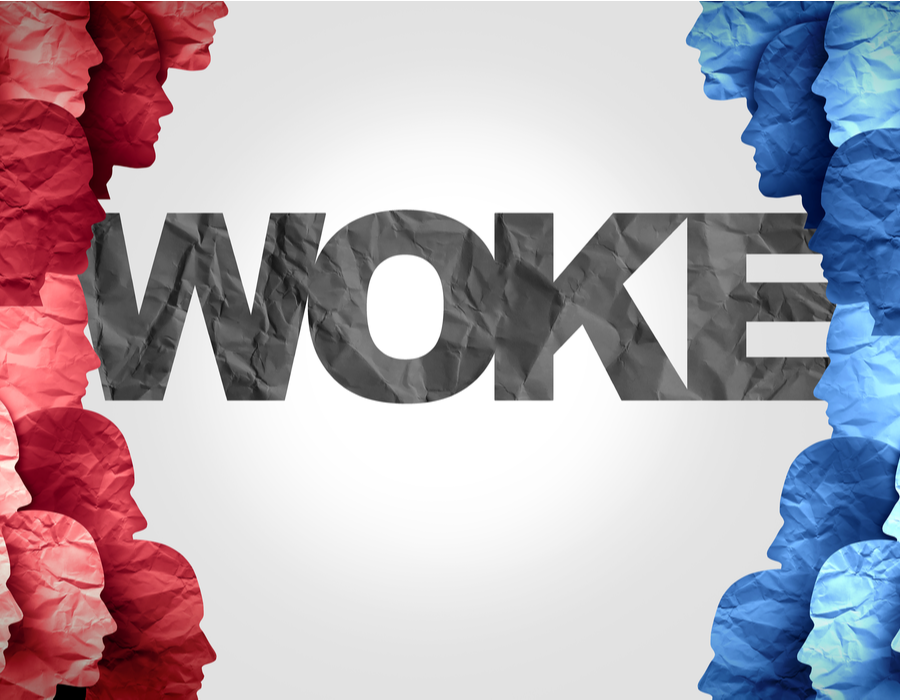Is it (still) ok to be 'woke'?
With COVID-19 beginning to fade into the rear view mirror, the largest annual conservative gathering in the United States sounded the alarm over what they deem to be another fast-spreading virus: "wokeness."
Once a rallying cry for Americans to be alert to racism, "wokeness" has become the political term of the hour, co-opted by culture warriors to denigrate "political correctness" and leftist orthodoxy.
"The radical left is trying to replace American democracy with woke tyranny," former US president Donald Trump told the Conservative Political Action Conference (CPAC) in Orlando, Florida during his March 26 keynote speech.
Speaker after a speaker at CPAC invoked rightwing betes noires from "cancel culture" to the policing of pronouns. Florida Governor Ron DeSantis, a potential 2024 presidential hopeful, joined in the barrage of accusations, telling the crowd that "the woke is the new religion of the left."
The concept has metastasized from its US origins to penetrate the global body politic, from the English-speaking world to newsrooms, university boards and parliaments in Europe, Asia and South America.
Among conservatives, wokeness is an all-pervasive ideology of extreme identity politics on behalf of minorities and women which is oppressive towards traditional cultural views.
"Among conservatives, wokeness is an all-pervasive ideology of extreme identity politics on behalf of minorities and women which is oppressive towards traditional cultural views," said Democratic political analyst Ed Kilgore.
The word "woke" as a means of describing enlightened skepticism over systemic injustice has its origins in African-American vernacular dating back before World War II.
American linguist John McWhorter points to the music of US blues-folk musician Lead Belly, who can be heard imploring his fans to "stay woke" on the 1938 protest song "Scottsboro Boys."
It appears to have crept into mainstream parlance in the early-to-mid 2010s, as the killings of Trayvon Martin, Michael Brown and other African-Americans ignited a firestorm of protest from Black Lives Matter activists who beseeched followers to "stay woke" to racially motivated police brutality.

Free speech
Its appropriation by liberal whites as a watchword for heightened cultural awareness followed soon after.
From there conservatives turned it into a slur, an accusation of superficial, over-the-top sociopolitical sensitivity or authoritarian, performative political correctness.
In its new pejorative guise, the term spread quickly to Europe, particularly France, where "le wokisme" is seen by supporters of Eric Zemmour, a far-right election rival to President Emmanuel Macron, as a toxic, divisive US import.
In Britain, too, rightwing politicians have been pushing back against social-justice and LGBT activism, framing it as a threat to free speech and marker of progressiveness gone awry.
In the United States, "anti-woke" campaigners deplore politicians, CEOs and public figures who worry about cultural appropriation when they should be concerned with immigration, spiraling food prices and education.
A quick foray into Texas Senator Ted Cruz's Twitter pronouncements reveals he has used the word "woke" to call out the military, the news media, universities, Hollywood, the CIA, cartoons, Starbucks and even the sport of baseball.
At the four-day CPAC, marketed this time around under the slogan "Awake Not Woke," Cruz joked about House Speaker Nancy Pelosi flying on a broomstick and mocked leftists badgering people to get vaccinated.
Meanwhile serious conservative priorities such as low taxation, free trade and a hawkish foreign policy took a back seat to scorched-earth rhetoric about an America suffering under the jack boot of Marxist political elites.
'Woke, government-run everything'
The Ukraine crisis came up here and there, but mostly just to be cast as a salutary warning about the excesses of political correctness.
"Woke weakness leads to things like we're seeing in the White House and what you're seeing around the world," former Wisconsin governor Scott Walker told attendees, while Senator Rick Scott warned of "woke, government-run everything."
Former White House advisor Steve Bannon lauded Russian leader Vladimir Putin for being "anti-woke," echoing the warm words of praise Trump and his chief diplomat Mike Pompeo had offered the former KGB spy.
The issue is not exclusively party political. One is as likely to hear Democratic strategist James Carville or comedian Bill Maher rail against "woke" ideology, for example, as leading Republicans.
Republican Glenn Youngkin weaponized what he saw as performative outrage over America's racial history to cast himself as the man who would save the school curriculum from 'critical race theory.'
And many critics of "wokeness" raise good faith concerns about over-medicalization of teen gender identity, zealous policing of language and the tendency to prioritize social justice over free speech.
This interpretation seems to chime with Middle America.
In November, ultra-conservative Glenn Youngkin defeated the Democratic frontrunner in Virginia's election for governor, in perhaps the biggest rejection yet of post-Trump political correctness.
During his campaign, the Republican Glenn Youngkin weaponized what he saw as performative outrage over America's racial history to cast himself as the man who would save the school curriculum from "critical race theory."
He won handily.


